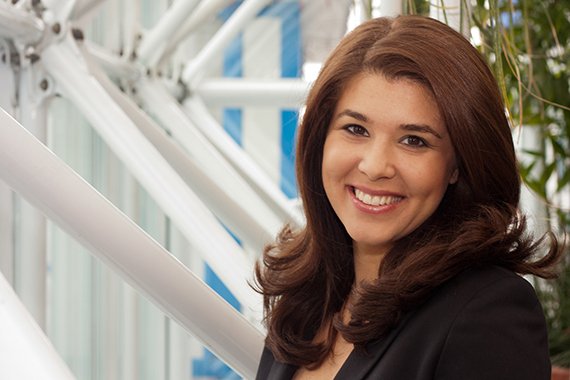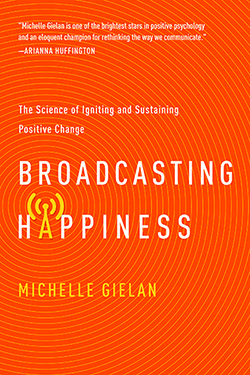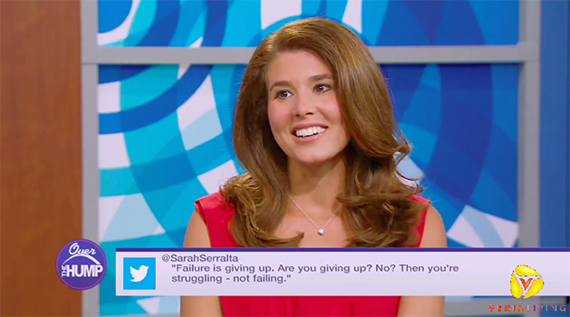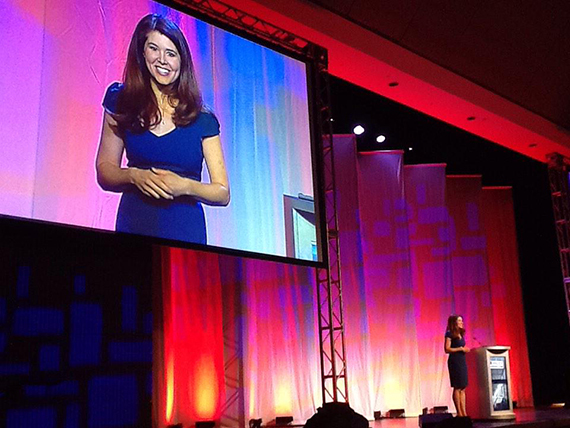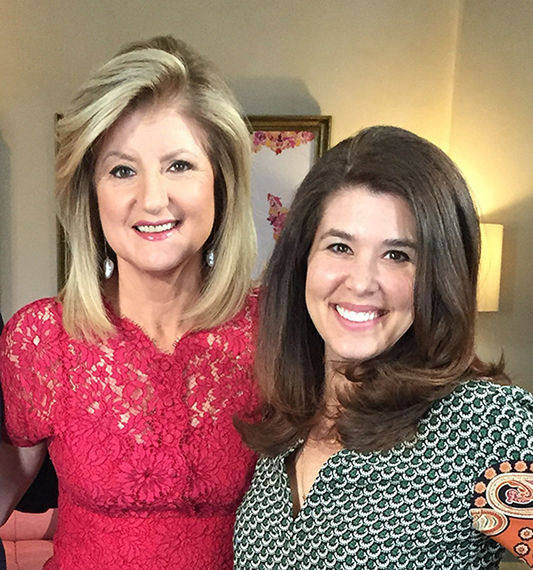Disclosure: BenBella Books, Inc. provided me with a copy of Broadcasting Happiness. No obligations were implied or inferred from this gift.
You've been there. You're having a great day, and then you turn on the news and something horrible has happened: wildfires blazing across a drought-ravaged countryside, earthquakes toppling buildings and destroying lives, yet another mass shooting in yet another school, one more act of injustice leading to a week-long riot. Or maybe you turn on the computer and check Facebook, and somebody has posted a rant about their work or co-workers (and maybe we can relate). Or maybe it's on Twitter. Or if it's not Twitter or Facebook the news, maybe you're in line at the grocery store, and the person in front of you is being rude to the clerk. Or the clerk is complaining about the working conditions or the customers. Or maybe the one complaining is you.
We all know the saying: happiness is an inside job. Each of us is responsible for our own emotions. And yet, the truth is, whether intentionally or not, every one of us influences others with our thoughts, our words and our actions. Knowing this fact empowers us to consciously choose our interactions and use our influence to make a positive impact on the world. This is the crux of Michelle Gielan's new book Broadcasting Happiness, released August 11.
Most books about happiness (and I've read a lot, believe me) focus primarily on the self. What's interesting about Broadcasting Happiness is that it acknowledges our greater role in the world, our power to affect change in our workplace, our communities, and our families, as well as ourselves. The ideas in Broadcasting Happiness are real-life applications of my strongly held belief that we all should "give what you need" (a tenet of my own personal manifesto).
Michelle's introduction to her book could have been written by almost any of us. She tells of the time when, as a news reporter for CBS, she was covering the funeral of a ten-year-old child, a random victim of random violence.
"I was tired of it. As I sat in that church in Englewood ... I was surrounded by a black congregation that was tired, too. Yet amidst the emotional exhaustion there were stories of hope, and those stories changed the trajectory of my life."
Shortly after this experience, she left her job at CBS.
"It was not because we were telling negative stories or because of the long hours and early mornings," she writes. "And it wasn't lost on me what I would be giving up -- broadcasting to millions of people every time that red light went on over the camera. I left because I had seen another light. This book is about that story."
From the moment I started reading Broadcasting Happiness, I was filled with questions about the concepts and ideas Michelle was sharing. I was delighted to have the chance to ask her a few questions about new book, below. Thank you so much, Michelle, for your time!
A: In our work, we define happiness as "the joy we feel growing towards our potential." This moves happiness beyond the momentary pleasure we get from a chocolate bar. We can grow in any domain of life from work to parenting to our tennis game, and find joy through the ups and downs along the way.
Q: You worked as a reporter many years ago in Chicago, and you say in your introduction in your book that attending the funeral of a ten-year-old child, yet another random victim of random violence, changed the trajectory of your life. Tell us about that briefly, and how that eventually led to your writing Broadcasting Happiness?
A: The funeral was for a 10-year-old girl struck by a stray bullet from gang gunfire while at her own birthday party at home. Sitting in the pews of the church, I saw another story unfolding beyond the violent, sensational one we reported the night of the shooting. That one centered on a strong community supporting the mother and a neighborhood becoming safer each day (by the stats) due to coordinated efforts by police and citizens. It was a story of progress and hope, and that story had the potential to spur even greater positive change, instead of leaving viewers feeling helpless and depressed. Seeing that, I knew there was a better way tell news stories so I traded in my anchor desk at CBS News for a research lab and to study under Dr. Martin Seligman, the founder of the field of positive psychology.
But while there I had an epiphany. We are ALL broadcasters. As parents, friends, and colleagues, we all broadcast messages to people throughout the day, and that changes how others see life, not to mention a full range of business and educational measures including stress, profitability and intelligence.
Q: And that's the core idea in your book. All of us -- not just the traditional media -- are "broadcasters" ("even if we don't say a word"), and what we broadcast out into the world has an impact. Further, you say, "Our stories are predictive not only of happiness, but also of business, educational, and health outcomes"; that "small shifts in the way we communicate internally and with others can create big ripple effects." Do you really believe that every person, regardless of title or role in society, has the ability to impact the world around them, for the negative or for the positive?
A: Too often we forget how powerful we are as individuals to shape how other people see the world. Each one of us constantly broadcasts to other people -- whether consciously or unconsciously -- verbally or non-verbally -- and those messages influence their brain. Message such as "I am stressed," or "I don't deserve to be here," are very different than "We can overcome this together," and "I am grateful." What's your broadcast to your family, colleague or friends?
Our research shows that consciously changing those messages can raise business and educational outcomes, including sales, by 37%, productivity by 31%, and reduce the negative effects of stress by 23%. At one of our clients, Nationwide Brokerage Services, when employees changed the story from "If you're having fun, you're not working hard enough," to "Broadcasting a positive mindset and prioritizing happiness fuels my success and connection with others," the insurance agency tripled revenues from $350 million to more than $1 billion in just a few years. We've seen over and over that change like that can occur when people at any and all levels speak up and change their broadcast.
Q: One strategy you talk about in your book is the concept of the "Power Lead," which is starting a conversation or other moment of connection by saying something positive. Can you give an example, and why is that so effective in fueling happiness and performance?
A: We have a million chances a day to deepen connection with others or shortchange ourselves that chance. Each time we begin a new conversation, meeting, email or phone call, starting with a power lead -- a small positive fact or story -- positively changes the trajectory of the interaction. It primes other people to be positive, and often they match what you're broadcasting by sharing something positive as well. The perfect time to use the power lead is the next time someone says "How are you?" Try skipping "fine" or "tired" and saying something meaningful and positive. If you asked me today I might say "I'm doing great! I had breakfast with my son, and he was being really funny." One manager I worked with started off meetings with three things he was grateful for: one about life in general, one about the team, one about someone specific on the team. He said that 45-second habit changed the tone of the meeting and improved productivity dramatically. In a study[1] where a manager was asked to deliver one piece of praise to one person on the team each day for 21 days, that team's entire productivity jumped by 31%! Moments of connection directly relate to many business outcomes.
Q: Most of us are not members of traditional media, but many of us are active on social media, thus making a greater case for your suggestion that we are all broadcasters. I do like the idea of posting positive stories, but what about the argument that social media isn't representative of true life, that people are becoming more depressed because they are comparing the truth of their own lives with the filtered and polished versions of other people's posted lives? Where is the balance between positivity and truth/reality?
A: Social comparison that leads to unhappiness is the downside of social media. In addition, surfing the web often comes at the cost of face-to-face time with friends and family. The upside is that it is possible to use social media in a way that increases happiness.
First, following celebrities or people you don't regularly see in person often doesn't add to our happiness. The best use of social media is to deepen existing close relationships or create new ones. Catching up on pictures of your good friend's kids ahead of a visit across the country to see her is a great way to deepen your time together. Following near-strangers can leave us feeling detached and lonely.
Additionally, being choosy about our friends based on what they broadcast is very healthy. The reason is that your feed influences your brain. A study from Cornell University[2] found that when researchers manipulated the news feed of more than 689,000 Facebook users, those who saw positive stories were substantially more likely to share positive ones themselves. The same holds true for negative stories. That study and a number of others show how we are more interconnected that we often think, and what we consume fuels our broadcast.
Q: In our life offline, I say over and over that we need to release negative people from our lives, but the reality is, it's not that easy. These people might be family, co-workers, or other people from whom it is difficult to extricate ourselves without challenging repercussions. Aside from ignoring or "muting" those people, what can we do?
A: Too often we work with those negative people or we might find ourselves married to them! (That second case is definitely more challenging!) No matter who they are, we don't need to let them have power over our mindset. I advocate a strategic retreat in three-parts: Retreat, Regroup, and Renter. Just like you wouldn't show up for battle in your bathing suit, you need to be battle ready when engaging with negative people.
Sometimes the most effective way to deepen a conversation is to retreat from it. If the conditions are not in your favor, for instance the person is riled up or you're out in public, choose to pause the conversation and regroup.
You'll continually be frustrated by negative people if you're not practicing positive habits (quick behavioral changes you can make in your life to increase your levels of positivity and reduce stress) to buffer against the negative. The best way to mentally regroup is to refocus your attention on the life-giving parts of your reality by counting your gratitudes, praising or thanking someone special in your life, or reviewing positive pictures you might have shot recently. These simple acts buffer your brain against the effects of negativity and stress.
When you reenter, make sure conditions are in your favor and minimize the length of time you interact with that person until you establish a track record of positive encounters. Keep your communications short and sweet, and hopefully soon you'll together start to rewrite the script of your encounters or at minimum protect yourself from the consequences of being exposed to someone else's negativity.
Q: Who is more powerful -- negative people or positive people?
A: I love this question because the answer is surprising! This is by far the most asked question when I give talks at companies. The answer is: It is not that either negative people or positive people are more powerful when it comes to setting culture at our companies and influencing the happiness levels of our families -- it is the most expressive person that wins. Often the most expressive person on our team at work for instance, is the most anxious or negative person, and they bring everyone down. Instead of trying to change their minds, focusing on being more expressive about the positive or getting others to speak up can drown out the influence these Negative Norms have on everyone.
Q: You mention in the book that you suffered from depression for a year. I know that's a fact that will resonate with so many readers, many of whom are looking for a way out. What were the first steps you took to start turning that around?
A: It was one of the hardest years of my life, but I am so thankful for it. Two things: Exercise daily and constantly doing what I call fact-checking. Every time my brain served up a story that was leading to unhappiness, I fact-checked it to find an equally true set of facts that illuminated a new story. For instance when I started stressing about how my job as a software developer was going nowhere, I uncovered new facts including that I had written a few lines of code that made it into the next project build or how no one at the company got a promotion in the first year so it was unreasonable for me to expect one. That helped change my thinking and the associated feelings. In my book I present fact-checking as a strategy you can use with other people if they are holding on to negative or stressful thoughts, but I first came to understand how powerful fact-checking can be by doing it with myself. After a while my brain became better at automatically seeing the positive side of life, the meaning embedded in every moment, and the things to feel grateful for, and I could more easily rewrite the thoughts that were at the root of the depression.
Q: You say several times in the book that social connection is the greatest predictor of happiness. Do you think much of society's collective unhappiness is more about disconnection? Is one of our greatest problems simply that we are not connecting?
A: There is no greater prediction in the research of our levels of happiness than the breadth and depth of our relationships. You don't need a ton of friends, just a few deep and meaningful relationships with others. These days with technology and over-scheduling, we are forgetting to invest time in simple connective moments with others. Even five minute meaningful conversations with other people not only fuel us in the moment but also build up a reserve of social capital so that when hard times strike, we can draw down on that bank account.
Overall, it is about being intentional about your broadcast choices. Choose not to engage in negative, gossipy conversations. Focus less on the problem and more on what can be done to solve it. When others come to you to complain, fact-check the story with them or use your leading questions to shift the focus of the conversation. Set the tone of conversations to positive using a power lead. Teach your kids an optimistic explanatory style. Continually build social capital with others through connective experiences. And turn off the radio or T.V. when all that is being transmitted is garbage. The clearer you are about your intentions and how you will connect with others, the more you'll reap the advantages of broadcasting happiness.
[1] "Increase Your Team's Productivity--It's FRE(E)," Margaret Greenberg and Senia Maymin, Positive Psychology News Daily, last modified October 4, 2008.
[2] Kramer, A. D. I., Guillory, J. E., and Hancock, J. T. "Experimental Evidence of Massive-Scale Emotional Contagion through Social Networks." Proceedings of the National Academy of Sciences of the United States of America 111, no. 24 (2014): 8788-90.
Michelle Gielan, Founder of the Institute for Applied Positive Research and an Executive Producer of The Happiness Advantage special on PBS, is an expert on the science of positive communication and how to use it to fuel success. To find out more about Michelle's book, visit the Broadcasting Happiness website (while there you can also take a test to determine your personal Success Scale score). You can also find out more about Michelle at GoodThink, and find her on Facebook and Twitter.
Also published on my blog at pamstucky.com.
Somewhere between funny and philosophical lies the truth in Pam Stucky's writing. Pam is the author of several books including the Wishing Rock series (Northern Exposure-esque contemporary fiction, with wit, wisdom, and recipes); the Pam on the Map travelogues (wit and wanderlust); and the YA Sci-Fi The Universes Inside the Lighthouse (wonder and wisdom). Pam's driving forces are curiosity, the pursuit of happiness, the desire to thrive, and the joy in seeing others do the same. Pam is currently working on writing a screenplay, because life is short, so why not try?
Find out more about Pam and check out her personal manifesto at pamstucky.com
Follow Pam on Facebook and Twitter.

